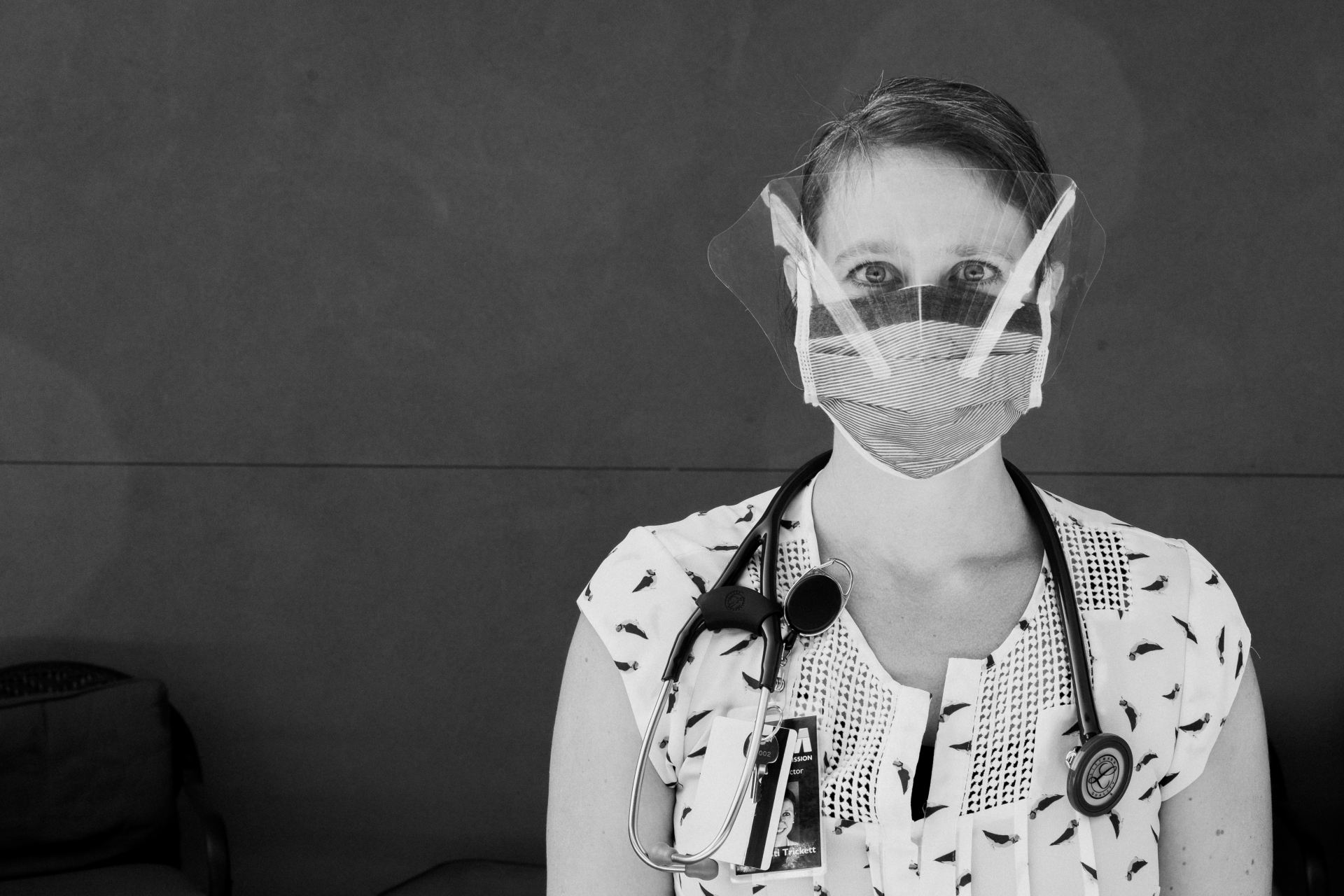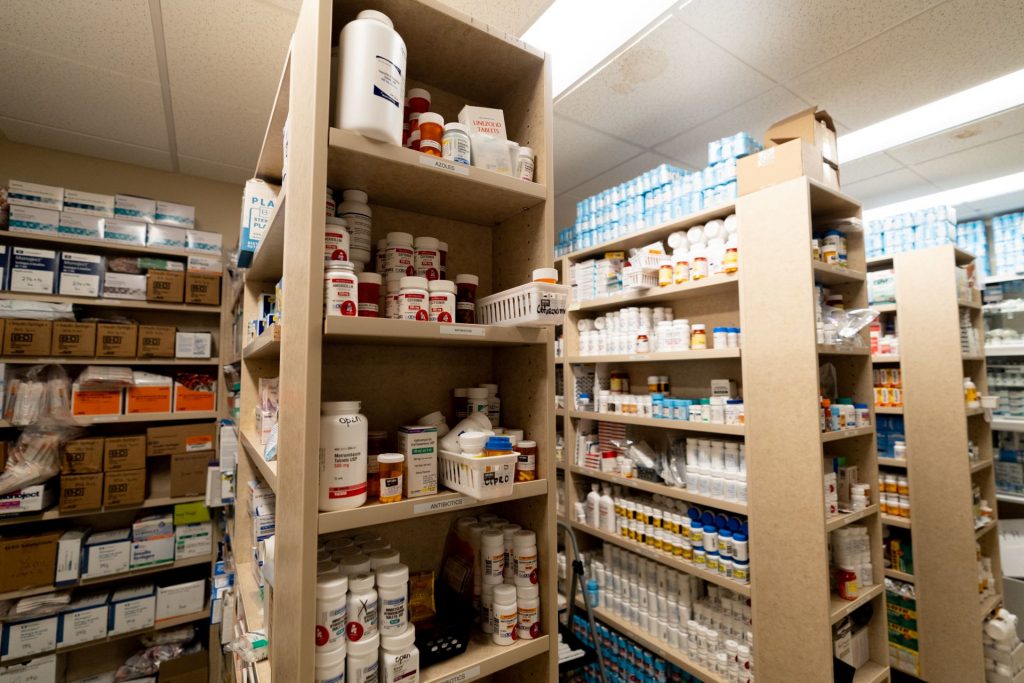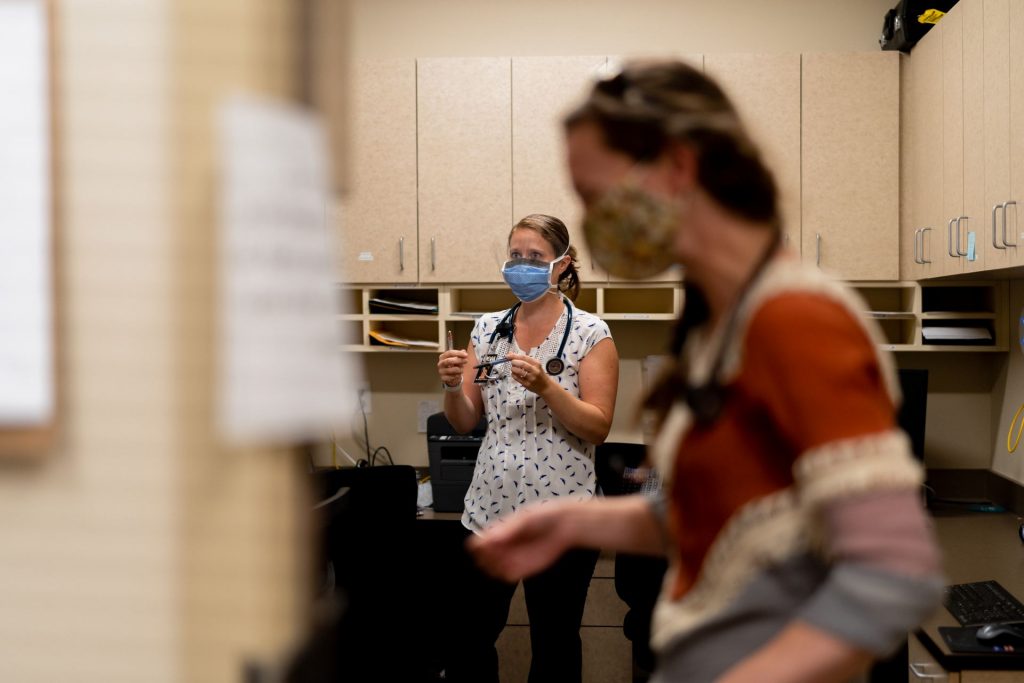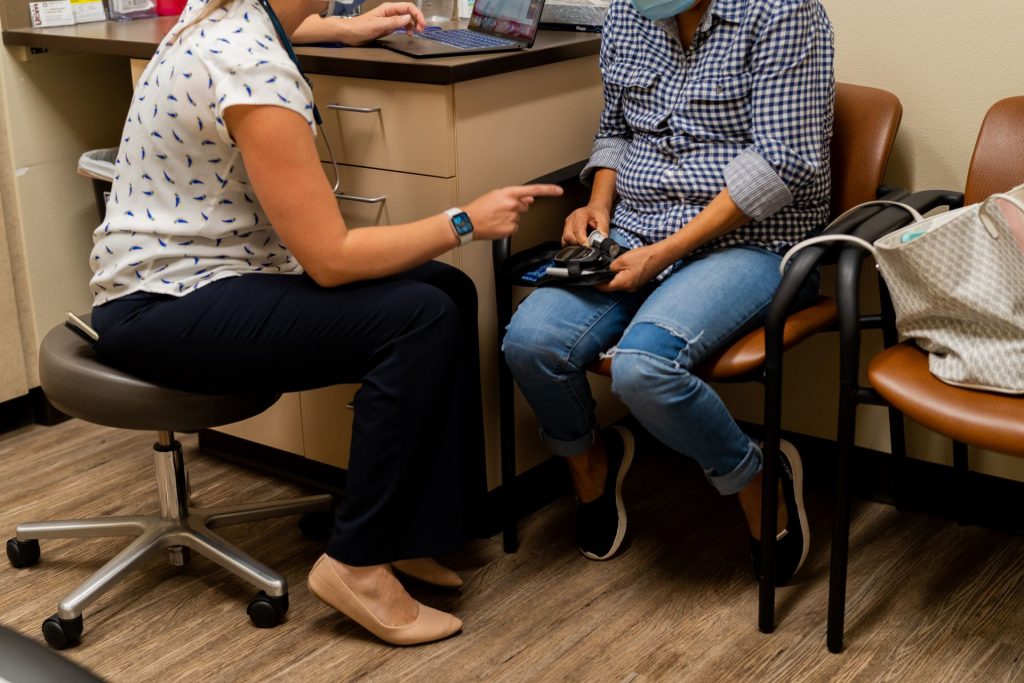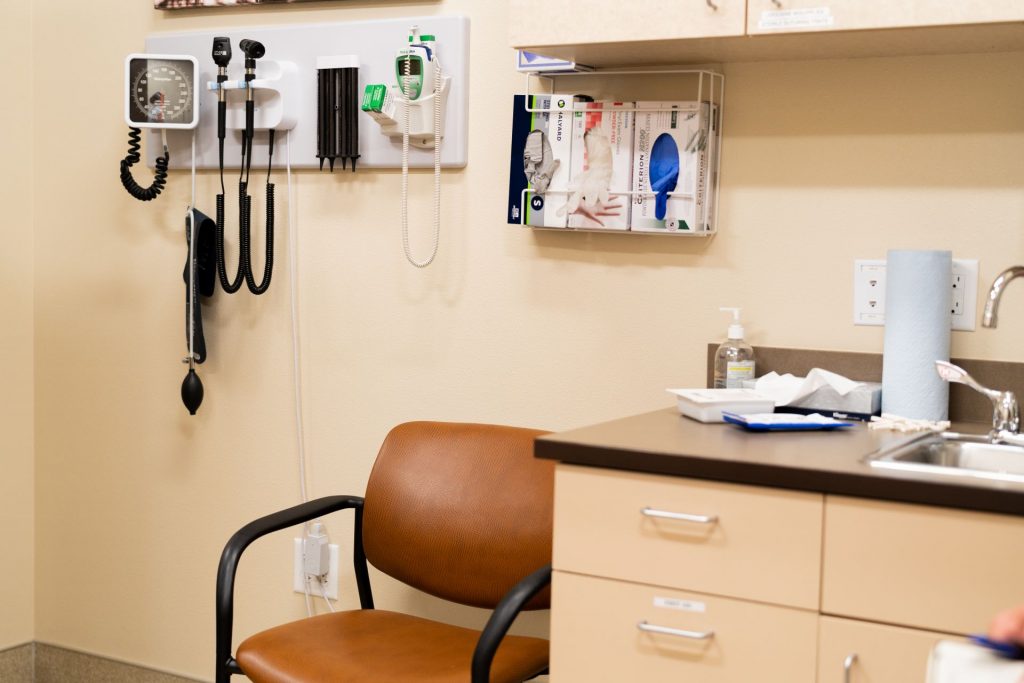A day in the life of Dr. Kristi Trickett, Medical Director for Washington’s largest free healthcare clinic for the uninsured.
Written by Paul Bubluski
Photography by Adam Dahir
Dr. Kristi Trickett greeted me as I pulled into the parking lot of the Yakima Union Gospel Mission (YUGM) Medical Care Center. Gesturing from outside my window, she pointed to her surgical mask and asked if I’d need one. It was the first display of her penchant for helping others — an eagerness that would echo throughout our day together.
Stepping out, I resisted the urge to offer a handshake. I’d interviewed Dr. Trickett for hours at that point, but had yet to meet her in-person to discuss her role as the YUGM Medical Care Center’s new Medical Director. In those early interviews she was consistently inspiring. She seemed permanently excited about the work that she was doing at the free clinic everyday — work that, quite frankly, sounded incredibly challenging.
In the new role, Dr. Trickett oversees the largest free medical clinic for the uninsured in the state of Washington, and one of the only clinics in the Yakima Valley devoted to caring for the primary medical needs of people experiencing financial restraints and homelessness. As we began making our way toward the clinic’s back gate, her passion for the job was palpable.
“They’re all in line for our clinic,” she told me as we approached a group of about 20 people. Appointments are not necessary at the clinic, which runs on a first-come, first-served basis.
“Good morning everyone,” said Dr. Trickett, passing by the group, “buenas dias.” Although her mouth was concealed by her surgical mask, her words seemed to carry a welcoming smile.
As we entered through the gate, Dr. Trickett provided a walking tour of the YUGM facilities, pointing out housing areas for families experiencing homelessness, playgrounds for their energetic children, and soft beds for those who may otherwise be sleeping on the hard ground.
“I have an appointment with a man named Lyle at 8:30,” she said as we carded into the clinic, “so the tour will have to be quick.” Although she was less than a year into the role, her ease in explaining the many intricacies that made the operation function seemed born from years of experience.
In roughly 15 minutes Dr. Trickett detailed the ins and outs of the free clinic, from the COVID-19 screening protocols that awaited patients at the front door to the items that filled the medical dispensary in the back. She praised the exceptional nature of the 200 volunteer medical professionals who assisted the clinic annually, and discussed the types of care the clinic offered — free of charge — to over 1,000 patients a month.
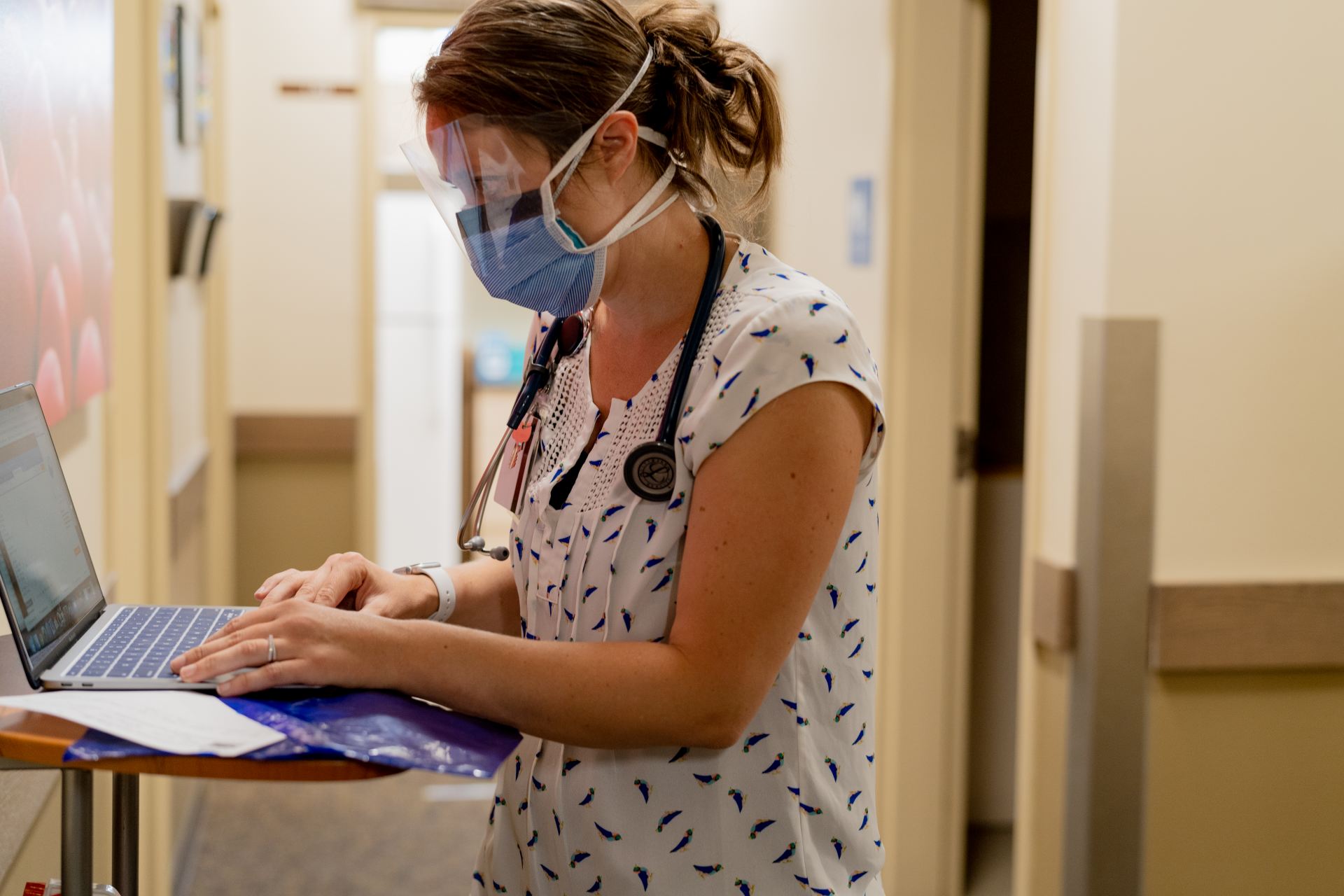
For most medical directors, a day at work consists of mountains of paperwork: developing patient regulations, writing clinic protocols, and balancing a host of financial challenges. While those duties were certainly part of her day, the part on display this morning was her rare ability to also provide care as an osteopathic physician. As she progressed through our tour, it was clear that her compassionate approach to patient care carried over into every aspect of her work.
Weaving through the halls and back out into the parking lot, she greeted everyone we passed. They all seemed to perk up to her buoyant voice, no matter how many times they had heard it before. Lyle, who smiled as she called to him at exactly 8:29 a.m., was more proof of that.
Dr. Trickett met Lyle when she started her new role at the clinic back in October. Today, she greeted him as she does every morning these days: cloaked in scrubs, an N95 mask, and a protective eye shield to clean his tracheostomy tube.
“Good morning, gentlemen,” said Dr. Trickett as she entered the room. Despite it being an undoubtedly discomforting daily routine, both Lyle and his roommate, Dean, seemed elated by her presence. A few minutes later she was waving goodbye, having cleaned and changed his tube, and having talked to him about his love for bike riding and running, and about the truck accident that landed him in the wheelchair he now sat in.
“Thank you so much,” he said as she left.
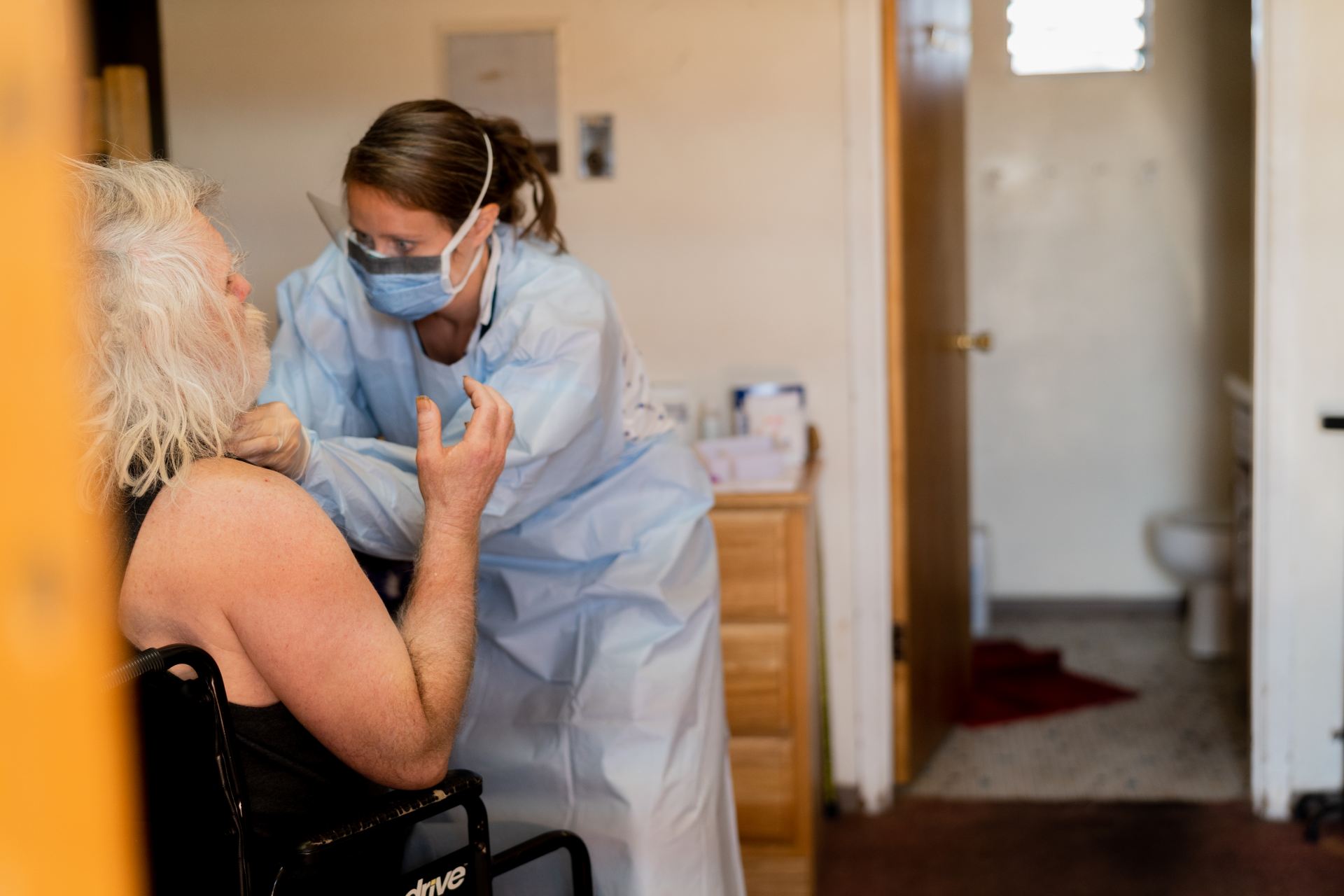
“Lyle is the perfect example of why it’s so important to treat the whole person,” she explained as we headed back toward the clinic. When she’d first met him to change his tracheostomy tube, she was alarmed by his rapid and heavy breathing and noticeable discomfort. In time, she got to know more about him. He told her about his anxiety attacks; she discovered that he longed for a reliable roommate to share his space with. Today, he and Dean were both thankful for her willingness to listen and her commitment to help.
“I had to brush up on how to do that when I got here,” she said as we reentered the clinic. Tracheotomy cleanings, she explained, were performed by nurses in her previous medical experiences. “I had to figure it out when I got here, because for someone like Lyle: we’re all he has.”
Back in the clinic, Dr. Trickett stood outside an exam room, reading the health record of her first patient of the day. Tracing the patient’s medical history, she nodded. She had never met the woman that awaited her behind the door, but any discomfort that may have existed evaporated as she opened it. “Buenos dias,” she said, greeting a small woman with soulful brown eyes. “Como estas?” Soon, they fell into a lively conversation.
Although she doesn’t consider herself fluent in Spanish, Dr. Trickett didn’t miss a beat in the discussion with the patient who — like many of her patients — spoke only Spanish.
“I just fell in love with the language for some reason,” she’d later tell me. “I’m so thankful for every opportunity I have to practice it and get better, because it gives me more chances to learn more about these amazing people every day.” Over the next two hours Dr. Trickett greeted four patients with the same warm “buenos dias.”
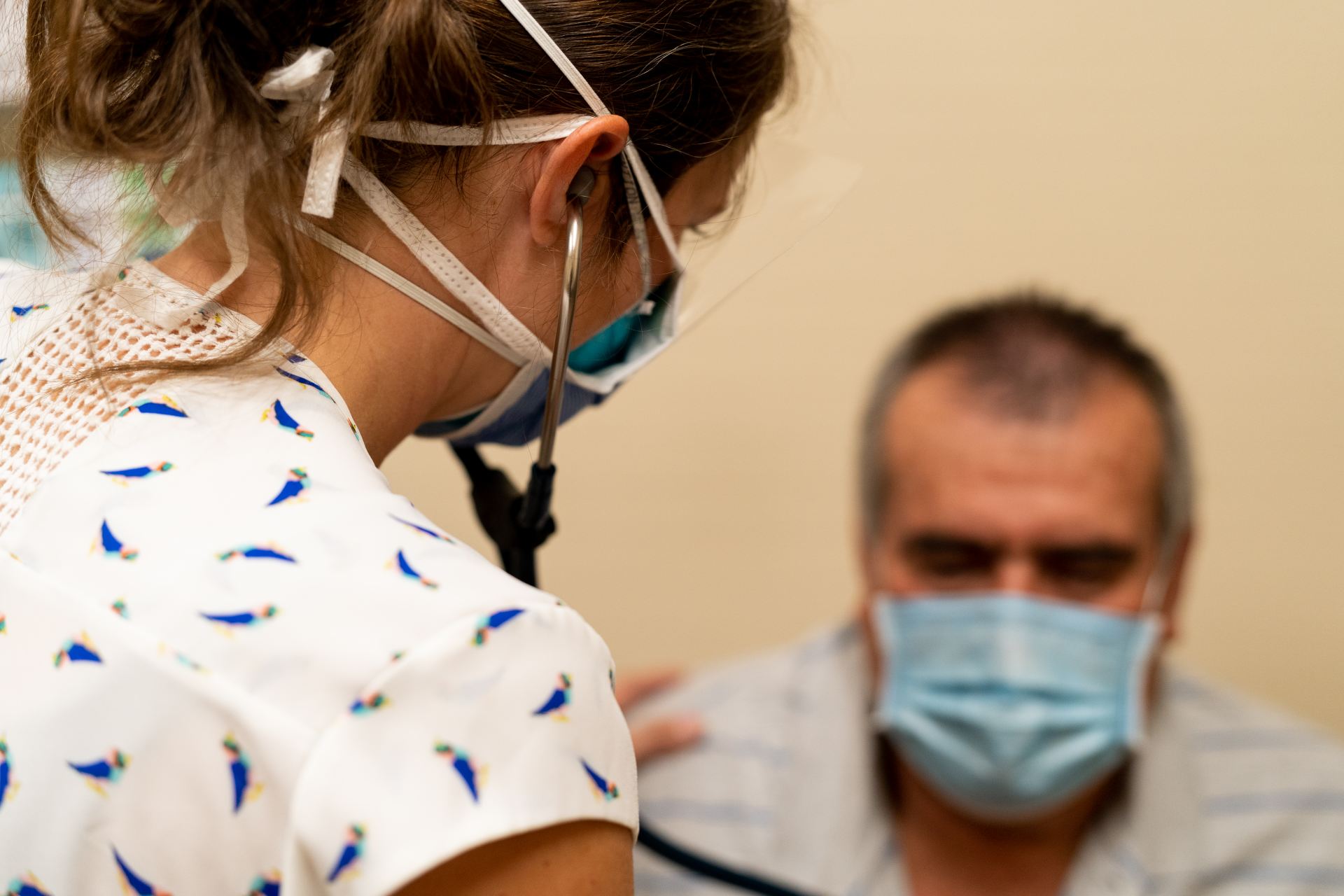
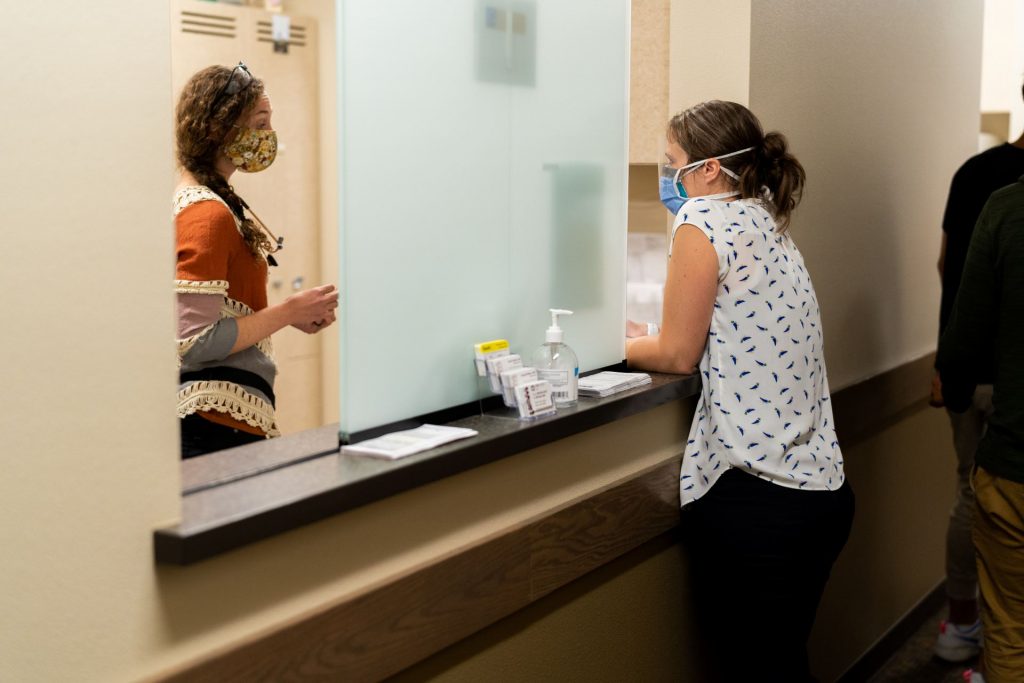
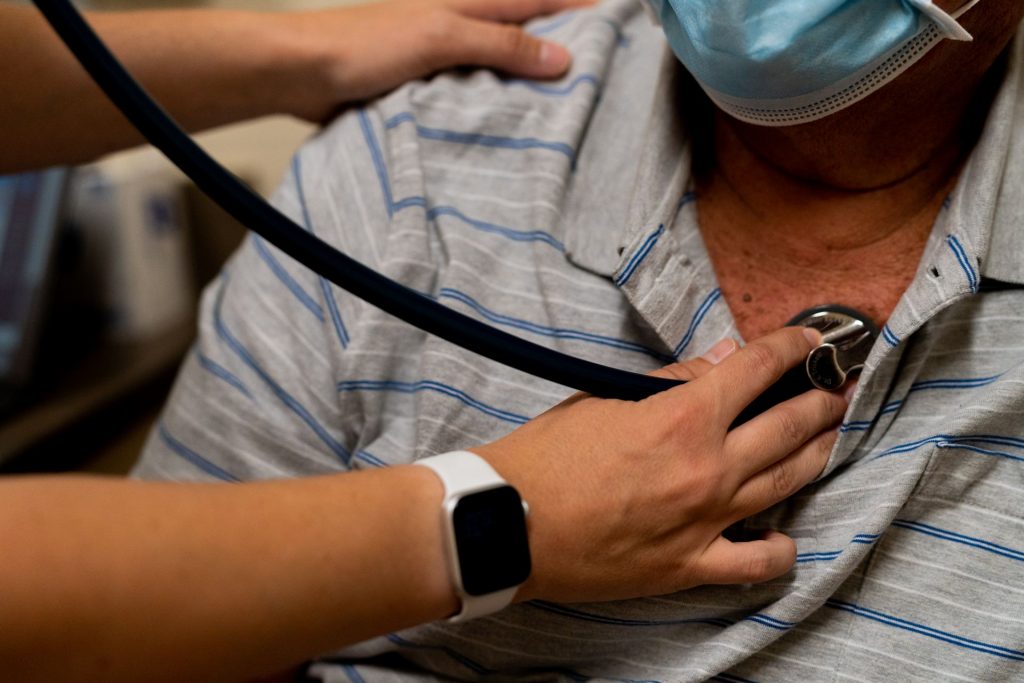
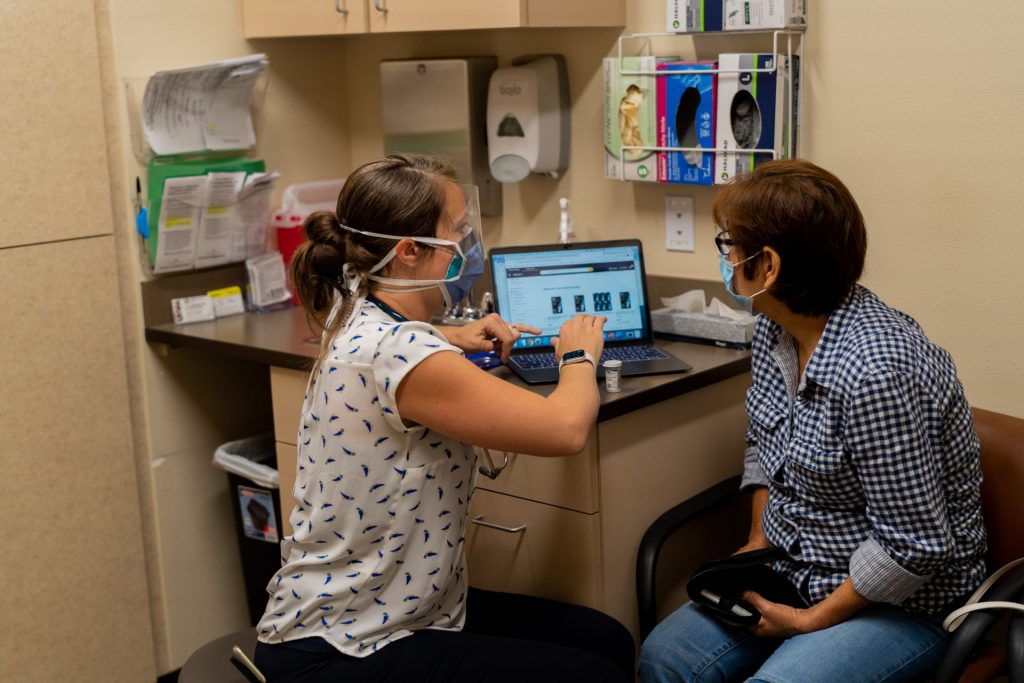
Everyone seemed at ease around her. Her magnetic joy carried every interaction. Her patients laughed and shared funny stories; they told her about their jobs, their children, their favorite foods and their hobbies. When one patient pulled an unopened envelope from her purse, which contained the results of a cancer screening, Dr. Trickett sustained her hopeful and supportive tone.
“Todo estara bien,” she told her (Everything will be okay). “Estoy aqui para ti” (I am here for you). They opened the letter together and celebrated the negative result as if they’d known each other forever.
Seeing her work, I was surprised to learn that she was hesitant to say “yes” when initially approached about helping to create and fill the role she now shined in.
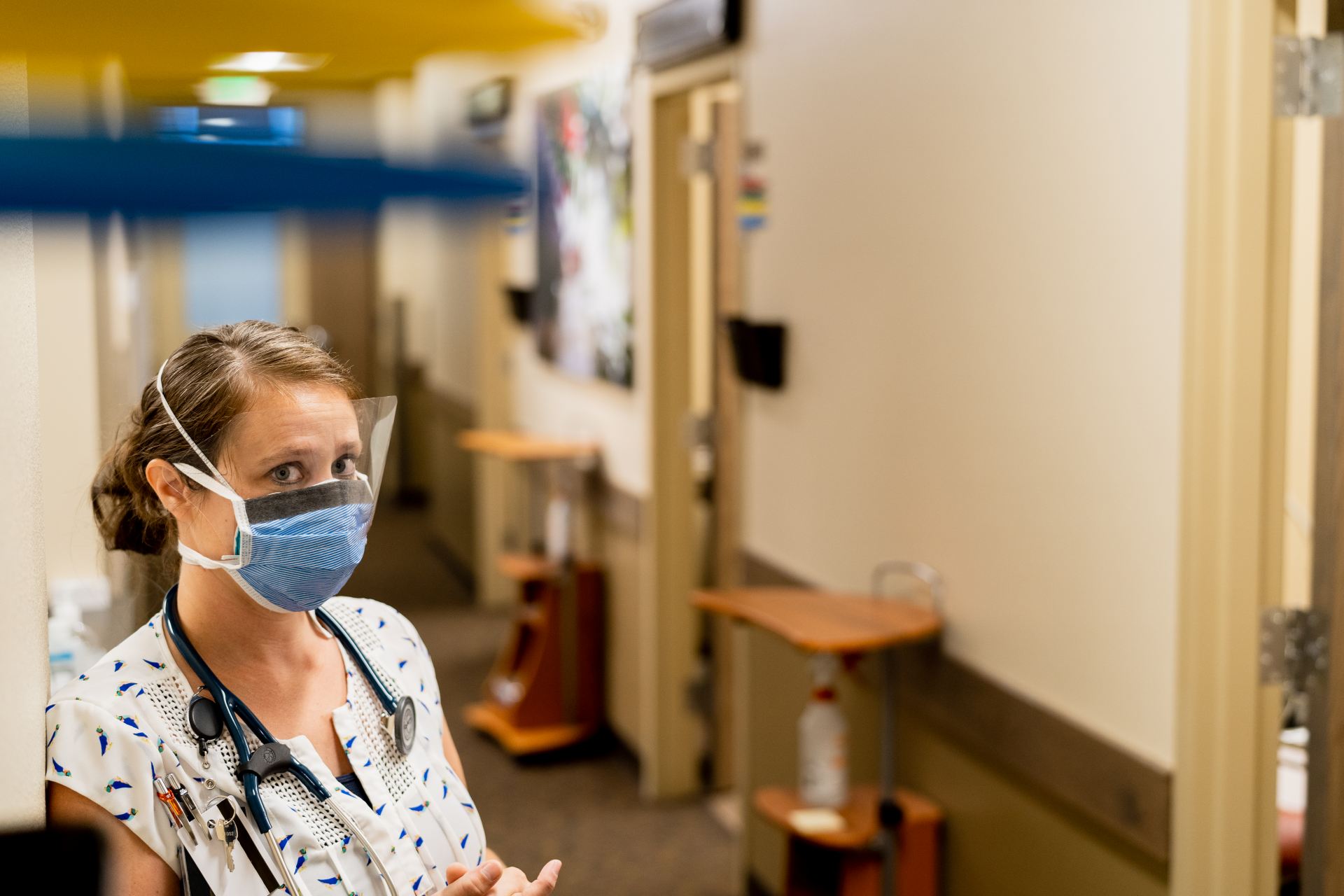
As a PNWU osteopathic medical student, Dr. Trickett dreamed of a future as a family medicine physician. After graduating in 2016, she joined the Central Washington Family Medicine Residency (CWFMR) program to do the work she loved, caring for people of all ages from all walks of life.
An insatiable learner throughout medical school and residency, she signed up for challenges that would help to mold her into the physician she wanted to be. She pursued rotations where Spanish was frequently spoken; she signed on for ophthalmology and surgery rotations to hone her understanding of the subjects that challenged her, hoping one-day she’d be better equipped to communicate complex primary care issues with specialists in those fields. “Someday I’ll be great at this,” she remembers thinking as she struggled through the experiences. “Until then, I’ll just keep learning.” When she graduated CWFMR, she was ready to do just that.
“I never wanted to teach right out of residency,” she explained. “I’m a lifelong learner, and I wanted to keep learning and getting my feet under me as I left residency. When YUGM called, I wasn’t sure if that was what I wanted.”
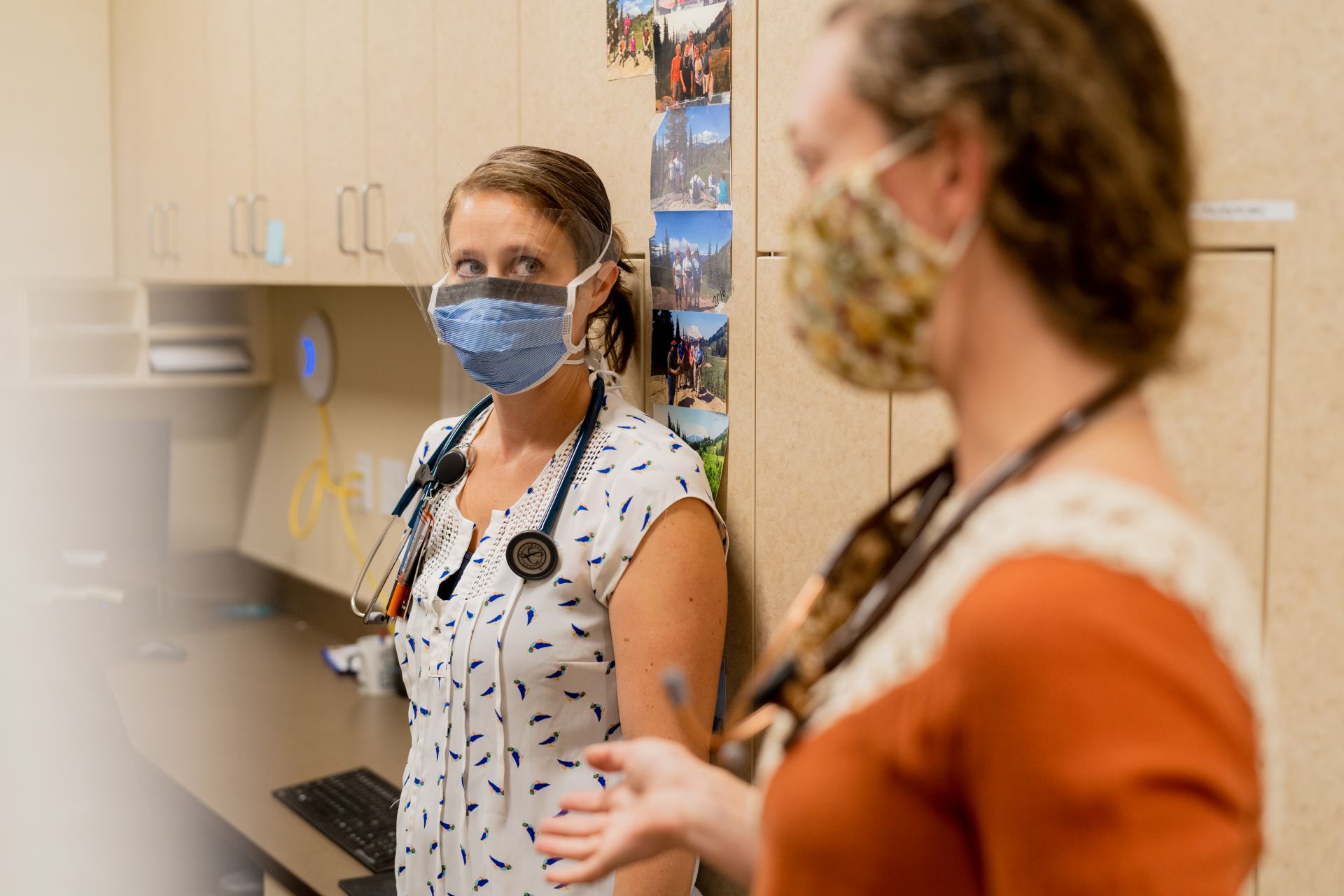
Representatives from the clinic knew about Dr. Trickett from her time at PNWU and CWFMR. Her patient rapport was outstanding, and she had a reputation as a connector – someone who seemed to know every health professional in the valley. “You’re a locally-grown DO,” they urged her on the phone. “You know everyone, and you practice holistic care; you’re perfect for this position.”
As she reflected on the early volunteering experiences she’d had at YUGM in her first-year at PNWU, Dr. Trickett recalled the patients she met — kind-hearted, gracious people who were truly from an underserved population. It was the exact population she dreamed of caring for, and she knew that she could use her skills to truly make a difference in their lives.
“The more I learned about the job, the more I recognized it as the perfect fit,” she explained. “It wasn’t just a job — it’s was an opportunity to take part in a community revolution.” Since signing on as Medical Director, Dr. Trickett has helped to launch that revolution.
As a preceptor, Dr. Trickett mentors a collection of future healthcare providers, including osteopathic medical students from PNWU, 3rd-and-4th-year MD students, students training to become physician and medical assistants, and student pharmacists. In under a year she has also helped to restructure the 25-year-old clinic, leaning on her existing community connections to help address the needs of her patients, and the community as a whole.
“Most of my patients are the people literally putting food on our tables. They’re not well paid, they have no benefits or health insurance, and they’re here working 12 hours a day just to feed their families. They need care, too.”
“When most people hear that I’m working at YUGM and assume that I’m caring for homeless people all day,” she explained. “That’s simply not the case.”
85% of the patients she sees are not homeless people from the mission next door but, instead, agricultural workers from the fertile fields that line the outskirts of the city. Home to over 40 commercial crops, the Yakima Valley grows the largest variety of fresh produce in the Pacific Northwest. As a result, the community is filled with an abundance of agricultural workers who need to be healthy to make ends meet.
“We’re here to support a community need,” said Dr. Trickett, sounding more determined with each word. “Most of my patients are the people literally putting food on our tables. They’re not well paid, they have no benefits or health insurance, and they’re here working 12 hours a day just to feed their families. They need care, too.”
As crop seasons ebb and flow, so too do the lines outside of the YUGM Medical Care Center. When cherry seasons ends, for example, Dr. Trickett can expect to see a collection of labor-worn pickers outside of her clinic doors, hoping to find relief for the ailments they’ve gained in the fields. “If we don’t care for them, who will?”
As she prepared to start the second half of her day — filled with meetings and duties more commonly associated with a medical director — Dr. Trickett said goodbye to her final patient of the day: a middle-aged woman who worked in agriculture who came in seeking help to control her diabetes. After matching her up with a pharmacy that stocked the proper insulin strips for her blood glucose meter at a fraction of the price she thought she’d have to pay, Dr. Trickett thanked her for coming in, and expressed excitement about seeing her again in three months for a follow-up.
As the woman left the room, tears welled in her eyes. Whether those tears were a result of the laughter that filled the room throughout their time together, a sense of dignity that came from connecting with someone who truly cared about her and her family, or some combination of both, I could only guess.
